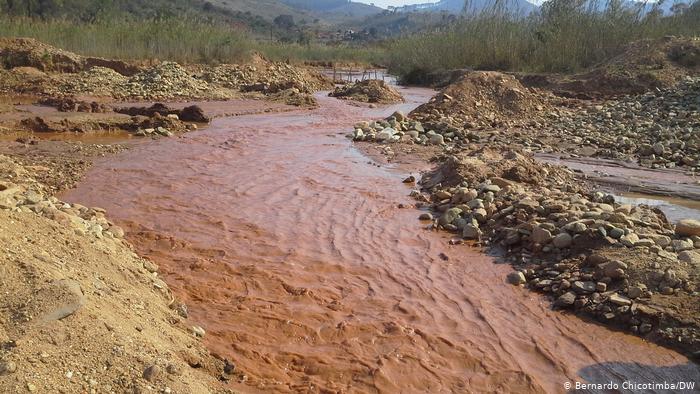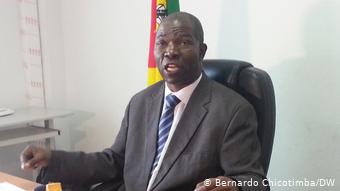Mozambique: Norway and UN project to strengthen women's participation in peacebuilding
Mozambique: Mining companies suspended over bad practices and river pollution

Photo: DW
Two mining companies operating in Manica, central Mozambique, have been suspended for polluting rivers vital for the agricultural and livestock sectors. Governor Franncisca Tomás suggests changes to the law to curb environmental damage.
Industrial miners Clean Tech Mining Company and Gems Resources Limitada saw their activity suspended and were fined more than 900,000 meticais (about €10,000) for recurrent water pollution, through dumping pollutants in rivers.
According to Inspector General of the Ministry of Mineral Resources, Obede Matine, industrial operators and artisanal miners are familiar with the relevant techniques, but do not implement them.
“We received a complaint about the pollution of the Revué River and sent a team from the Provincial Infrastructure Services,” Obede Matine explains. “In fact, the complaint was justified. They were polluting the rivers, and not using water settling basins as they should,” he adds. “We suspended them and fined both companies.”
Dangers for agriculture and the environment

According to figures from the Business Council of Manica, bad practices associated with mining are harmful to agriculture and the environment. Many agrarian investors are forced to abandon their investments because of the negative effects of mining on agriculture, such as soil degradation and impoverishment, river pollution and increased land erosion.
Romão Gemo, a representative of Companhia de Vanduzi, a company which grows and exports vegetables to Europe, warns that the situation is reducing investment in the agrarian sector.
“Organising the mining sector is necessary, but it is a huge challenge, as I have information that there are agricultural industries and companies in Zimbabwe which have also been closed because of the use of mercury in this illegal activity,” he warns.
Changes in legislation

The governor of Manica, Francisca Tomás, admits that the province has wealth in the forestry, mineral and agricultural sectors, but stresses that it is essential to combine efforts so that agriculture does not suffer, since it is the basis of the country’s development.
“The rivers that we used for agricultural production are no longer fit for watering crops or for livestock to drink,” she warns.
“It is true that the mining sector is a source of income for our economy, but I am inclined to change the legislation so that we can be firmer in monitoring what is happening in our province and in the others which also have mineral resources,” the governor suggests.













Leave a Reply
Be the First to Comment!
You must be logged in to post a comment.
You must be logged in to post a comment.